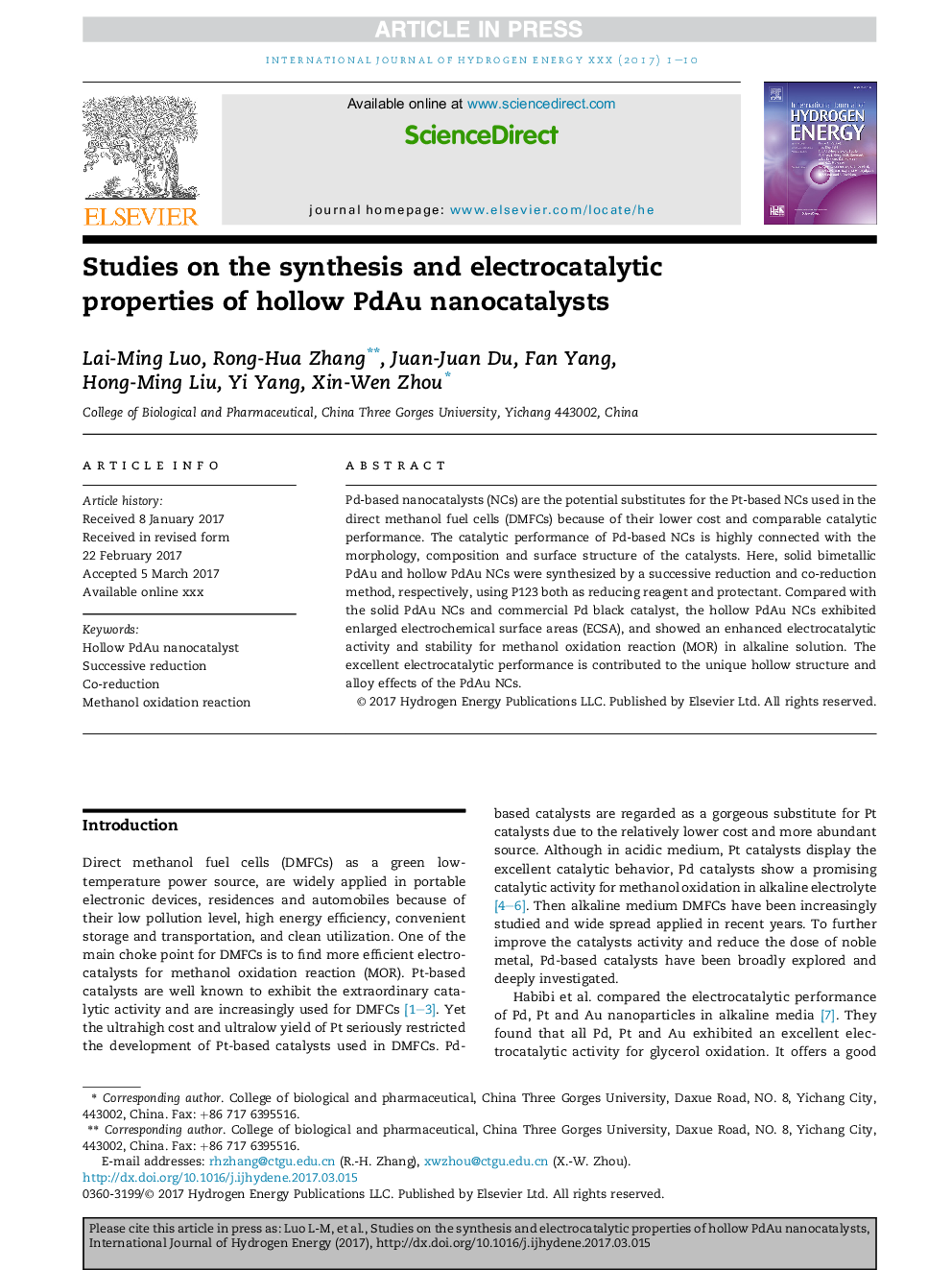| Article ID | Journal | Published Year | Pages | File Type |
|---|---|---|---|---|
| 5147360 | International Journal of Hydrogen Energy | 2017 | 10 Pages |
Abstract
Pd-based nanocatalysts (NCs) are the potential substitutes for the Pt-based NCs used in the direct methanol fuel cells (DMFCs) because of their lower cost and comparable catalytic performance. The catalytic performance of Pd-based NCs is highly connected with the morphology, composition and surface structure of the catalysts. Here, solid bimetallic PdAu and hollow PdAu NCs were synthesized by a successive reduction and co-reduction method, respectively, using P123 both as reducing reagent and protectant. Compared with the solid PdAu NCs and commercial Pd black catalyst, the hollow PdAu NCs exhibited enlarged electrochemical surface areas (ECSA), and showed an enhanced electrocatalytic activity and stability for methanol oxidation reaction (MOR) in alkaline solution. The excellent electrocatalytic performance is contributed to the unique hollow structure and alloy effects of the PdAu NCs.
Related Topics
Physical Sciences and Engineering
Chemistry
Electrochemistry
Authors
Lai-Ming Luo, Rong-Hua Zhang, Juan-Juan Du, Fan Yang, Hong-Ming Liu, Yi Yang, Xin-Wen Zhou,
